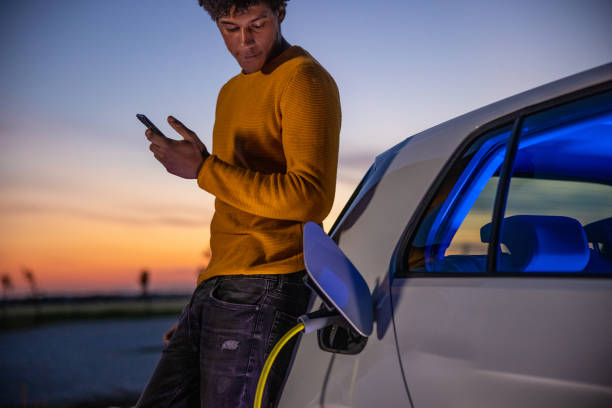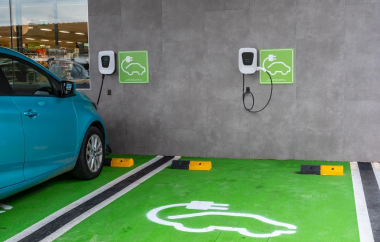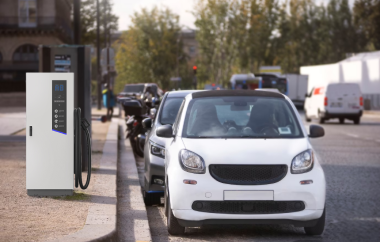Cost of Charging Electric Car at Home in 2024
Introduction: Cost of charging an electric car at home:
The transition to the use of electric motor vehicles is popular and common indicating that more drivers are opting for the clean shift. However, when new technology is developed, new concerns arise, one of which is crucial for EV owners: what is the cost of charging an electric car at home? So in today’s article, we are going to discuss home EV charging, calculate something, and see how home EV charging costs are lower compared to conventional gasoline cars.
Plugging In vs. Filling Up:
It is a cost showdown because organizations spend highly without showing much concern in their purchasing behaviours which may lead to wastage of cash. This is true that you can easily be charged an arm and a leg whenever you pull into a gas station to fuel your car. However, the general concept gets much simpler in terms of charging an electric car at your home. The following is a summary of the main variables that affect the price:
- Power rates:
Some of these factors include the cost of power per kilowatt-hour, (kWh). It will depend on your region and energy provider, however, the prices fall from 14 to 16 cents per kilowatt hour. To calculate your exact cost, go to the website of your supplier or refer to your last electrical bill.
- Vehicle Efficiency:
Electric cars have an efficiency that is given in kilowatt-hours per mile just like conventional automobiles. An electric car with a lower per-mile rating in kWh will be cheaper to charge because it will consume less power to travel a given distance.
Factors in Home EV Charging Costs
This work attempts to prove that charging your electric automobile (EV) at home costs less than refueling at the petrol station. It comes to the cost of charging an electric car at home and while you know the big things that might add up to the total or decrease, there are those small things that may affect it and therefore make or mar the charging routine. Here’s a closer look at these unnoticed cost determinants:
- Charger choice:
Level 1 charger that charges your car using a standard 120-volt outlet is standard equipment with most EVs. Although these chargers are quite convenient, they are quite slow and sometimes even do not function at full capacity. The second, although using the same hardware, might come with a notable increase in speed if done with the help of a licensed electrician and installing a Level 2 charger. It is important to know that some of the Level 2 chargers do sacrifice a tiny bit of energy compared to the Level 1 charge.
The Idea and Its Realization:
However, like in any type of system, not all the energy is used in charging as some of it becomes heat energy. However, this loss is often in a proportionate ratio of about 5 percent and 10 percent depending on the type of charger, the length of the cable, or even the climatic conditions of the location. Even though you may have other priorities than decreasing these losses, it is useful to be aware of them to get a better picture of your billing costs.

The Math of Money-Saving Miles:
Use this easy calculation to determine how much it will cost to charge your electric vehicle at home:
- Cost per Charge, in dollars = Electricity Rate (cents/kWh) X Battery Capacity (kWh) / 100
- For instance, if your car has a 60kWh battery and your electricity tariff is 15 cents kWh. The entire fee would be:
- Cost per Charge = 0. For a 100 units out of the 60 kWh, it comes to 15$/kWh x 60 kWh / 100 = 9$. 00
Get your Car Home-Charged and Save Money Big-Ways!
On the other hand, the average price of petrol is different but could occasionally be around one dollar for every four that is, $4 per gallon. Calculating the approximate expense to drive 100 miles in a conventional car with 30mpg will be around 13 USD. 33 [we derived the number 4 by subtracting the number of miles per gallon the car is capable of from 30; multiplying the result by the cost per gallon of gas; and then dividing by 100]
The Shocking Truth for Home Charging Saves Big!
Some utility providers offer TOU power prices; these are prices that change with the time of day. There are often cheaper tariffs that come with power during off-peak hours, which are late evening and morning. Since electricity tariffs are likely to be lower during these times, you might even get additional savings out of your home charging schedule if you time it to coincide with these times of the day.
Benefits of Charging Your Electric Car at home:
Think of owning an electric car that is conveniently parked at home each time you wake up in the morning. Other than the actual cost which, by the way, is significantly less, there are several advantages of home charging. For EV owners, plugging in at home is the ultimate gain for the following reasons:
- Convenience is King:
Hello to not having to run through the drive-thru for gas or waiting in queues at a petrol station. If you employ home charging, your automobile is always charged and is in a position to go. Plug it in at the office at the end of the work day that way when you wake up in the morning the battery will be fully charged. Would it not be great to avoid running to the nearest gas station at the last minute? Home charging brings mastery and erases unneeded runs.
- Save Big on Every Charge:
Purchasing petrol could be painful in terms of expenditures. At the same time, home charging is considerably cheaper than other options for recharging. Finally, possibly you will convey electric power from your house to fuel the electric car or any EV at an extremely cheap price to gasoline. In addition, there are even many utility suppliers that offer time-of-use quite different from conventional electricity tariff that enables you to charge at a cheaper rate during off-peak.
Additional Benefits:
The time is precious:
To save that precious commodity, avoid spending it at the pump and instead, get more out of life by doing more of the things you love. Since home charging is made use of, several cases of refuelling stops are removed and therefore, provide your busy schedule the much-needed attention. To explain this, home charging may cut down on the time one spends charging, hence enabling one to sleep a little longer, grab a coffee on the way out, or even spend the extra minutes with the family.
Waterproof:
Inclement weather can be conquered and to encounter it to get gas in your automobile is a thing of the past. Home charging is an ideal way to charge your EV whether it is raining, snowing, or it is extremely hot outside; you do not have to worry about it since you can charge it in the security of your garage. The option of home charging enables one to avoid having to fight petrol stations in the rain or boiling sun.
Maximize Battery Life:
Slow and steady it seems, is the watchword when it comes to EV batteries, especially for the key player; Tesla. Though it may take a longer time to charge relative to charging stations, home charging maintains the top quality of batteries. Long-term cost savings are obtained from the fact that your EV’s battery is likely to last longer.
Conclusion:
Are you prepared to start your electric journey? To find out more about charger kinds, features, and installation concerns explore our EV chargers. You can make home charging easy and economical with the correct setup and some planning. High-quality charging stations with sophisticated management features are available from KlookDC for smooth, stress-free charging.
Read more: How to Find the Cheapest EV Home Charger?

